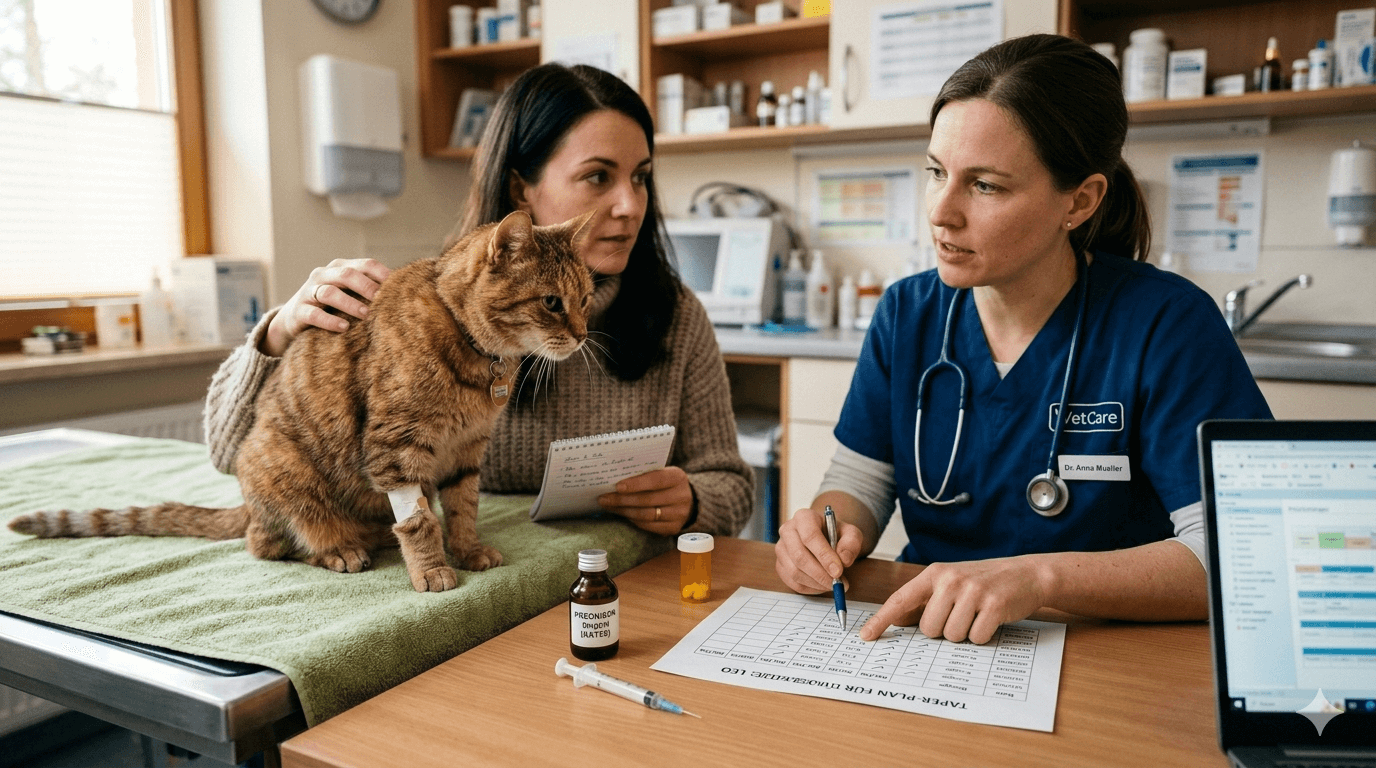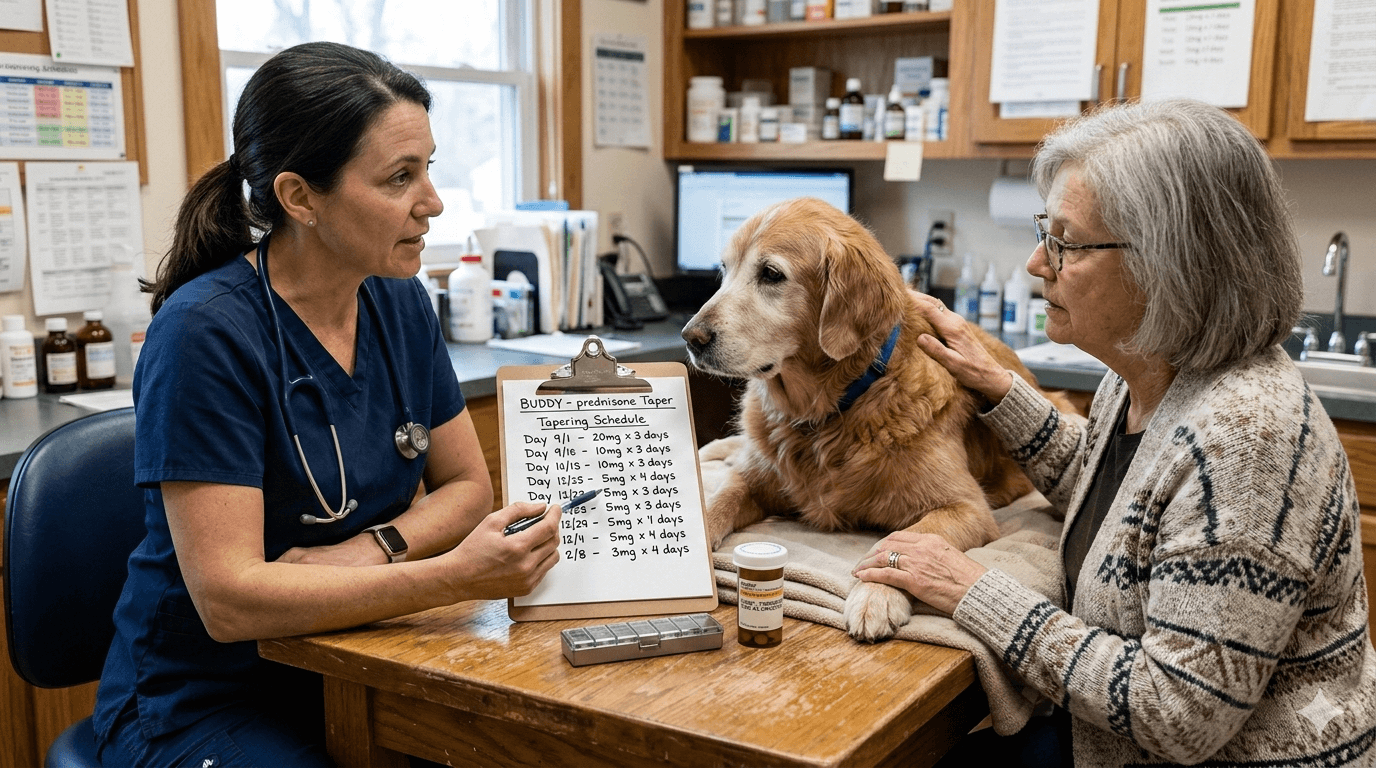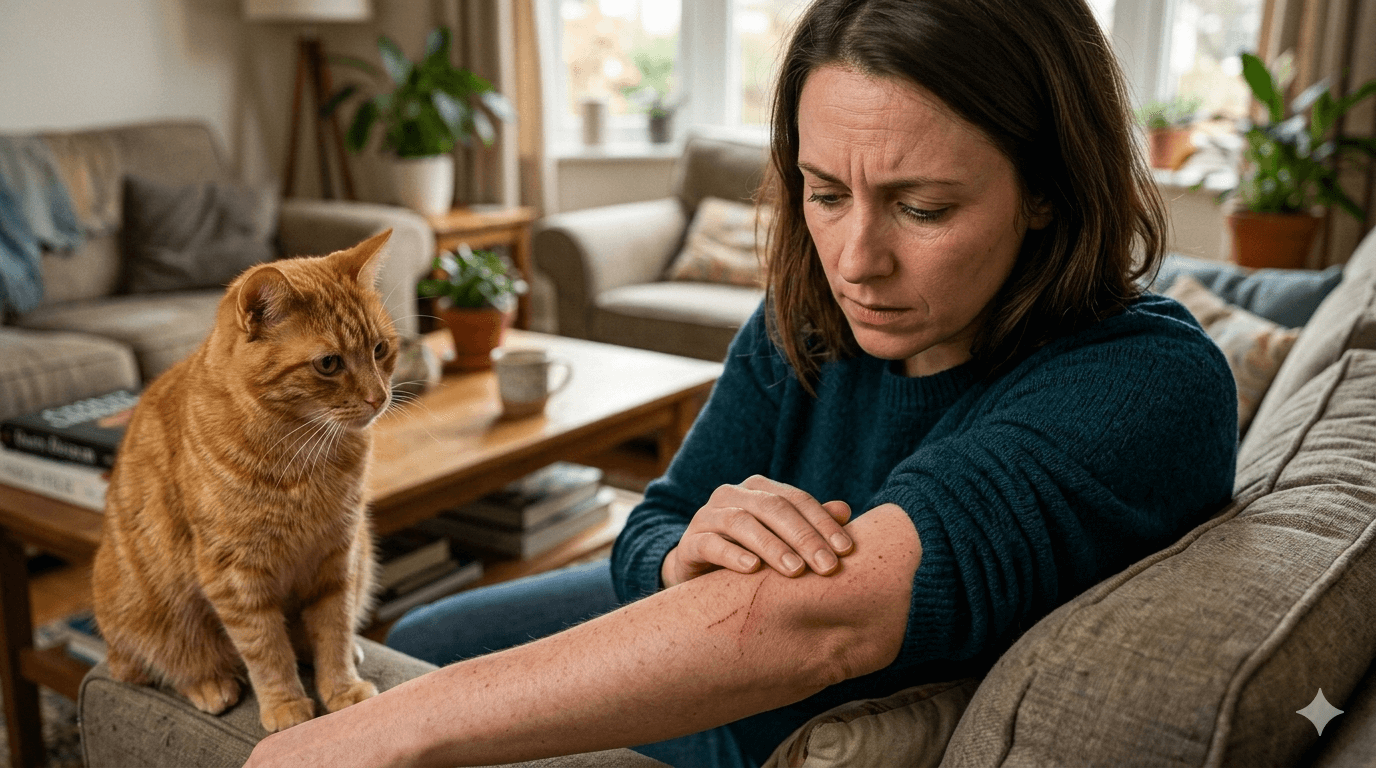Can I Give My Cat Vaccines Myself?
Vaccinating your cat is a crucial part of responsible pet ownership, protecting them from potentially life-threatening diseases. However, many cat owners wonder whether they can administer vaccines themselves instead of relying on a veterinarian. While it might seem like a cost-effective and convenient option, there are important factors to consider before taking this step. From legal requirements to the risks involved, understanding the pros and cons of DIY cat vaccinations is essential to ensure your feline friend stays healthy and safe. In this blog post, we’ll explore everything you need to know about giving vaccines at home and whether it’s the right choice for you and your cat.
Risks of Administering Cat Vaccines Yourself
While administering vaccines at home may save time and money, it comes with several risks that could harm your cat or lead to complications. Understanding these dangers is critical before deciding to proceed.
Improper Injection Technique:
Incorrect administration, such as injecting into the wrong area or at the wrong angle, can cause pain, abscesses, or even nerve damage.Missed Symptoms of Adverse Reactions:
Without professional guidance, you may not recognize signs of an adverse reaction, such as swelling, lethargy, or difficulty breathing.Legal and Regulatory Issues:
Some regions require vaccines to be administered by licensed veterinarians to ensure compliance with health regulations.Ineffective Vaccination:
Improper storage or handling of vaccines can render them ineffective, leaving your cat unprotected against diseases.Lack of Professional Oversight:
Veterinarians assess your cat’s overall health before vaccinating, ensuring they’re fit to receive the vaccine—a step you might overlook.
These risks highlight why self-vaccination should be approached with caution, as mistakes can have serious consequences for your cat’s well-being.
Potential Benefits of DIY Cat Vaccinations
Despite the risks, some cat owners opt for at-home vaccinations due to perceived benefits. These advantages can make the process appealing under certain circumstances.
Cost Savings:
Purchasing vaccines directly and administering them yourself can be more affordable than paying for veterinary services.Convenience for Rural Owners:
For those living far from veterinary clinics, at-home vaccination eliminates the need for long trips.Reduced Stress for Fearful Cats:
Cats who experience anxiety during vet visits may feel more comfortable receiving vaccines at home.Flexibility in Scheduling:
You can vaccinate your cat at a time that suits your schedule, rather than adhering to clinic hours.Empowerment Through Knowledge:
Learning how to vaccinate your cat can deepen your understanding of their healthcare needs.
While these benefits exist, they must be weighed carefully against the potential drawbacks to determine if DIY vaccination is truly the best option.
Check this guide 👉How Much Are Cat Vaccines? Best 7 Health Tips!
Check this guide 👉Understanding the FVRCP Cat Vaccine: Best 7 Health Tips!
Check this guide 👉I Dont Know If My Cat Has Been Vaccinated: Best 7 Tips!

Pros of DIY Cat Vaccinations | Cons of DIY Cat Vaccinations |
|---|---|
Cost-effective compared to vet visits | Risk of improper injection technique |
Convenient for remote locations | Potential for missed adverse reactions |
Reduces stress for anxious cats | Legal restrictions in some areas |
Flexible scheduling | Risk of ineffective vaccines |
Educational empowerment for owners | Lack of professional health assessment |
How to Safely Administer Vaccines at Home (If You Decide to Proceed)
If you choose to vaccinate your cat at home, following proper protocols is essential to minimize risks. Here are some steps to guide you through the process safely.
Consult Your Veterinarian First:
Seek advice from your vet to ensure your cat is healthy enough for vaccination and to confirm which vaccines are necessary.Purchase High-Quality Vaccines:
Buy vaccines from reputable suppliers to avoid counterfeit or expired products that could be ineffective.Read Instructions Carefully:
Follow the manufacturer’s guidelines for storage, preparation, and administration to ensure the vaccine works as intended.Choose the Right Location:
Administer the vaccine in a clean, quiet area where your cat feels calm and secure.Monitor for Side Effects:
Keep a close eye on your cat for any signs of adverse reactions, such as vomiting, swelling, or unusual behavior, and contact a vet immediately if needed.
By adhering to these precautions, you can reduce the likelihood of complications while vaccinating your cat at home.
Signs Your Cat Needs Immediate Veterinary Attention After Vaccination
Even when done correctly, vaccinations can sometimes lead to unexpected reactions. Recognizing these signs ensures prompt treatment and minimizes harm.
Severe Swelling at the Injection Site:
Minor swelling is normal, but excessive or growing lumps may indicate an infection or allergic reaction.Lethargy or Weakness:
If your cat seems unusually tired or unresponsive, it could signal a systemic reaction to the vaccine.Difficulty Breathing:
Labored or rapid breathing is a serious symptom that requires immediate veterinary care.Vomiting or Diarrhea:
Gastrointestinal upset after vaccination may indicate an adverse reaction or underlying issue.Loss of Appetite:
Refusal to eat for more than 24 hours post-vaccination can be a sign of distress or illness.
Being vigilant about these symptoms allows you to act quickly and protect your cat’s health.
Common Mistakes to Avoid When Vaccinating Cats
Mistakes during the vaccination process can jeopardize your cat’s health. Being aware of these pitfalls helps you avoid unnecessary risks.
Skipping Pre-Vaccination Health Checks:
Failing to assess your cat’s overall health increases the risk of complications during or after vaccination.Using Expired or Improperly Stored Vaccines:
Outdated or improperly handled vaccines may fail to provide immunity, leaving your cat unprotected.Injecting in the Wrong Location:
Administering vaccines outside recommended areas can cause pain, abscesses, or other complications.Overlooking Sterilization Protocols:
Not using sterile needles or equipment raises the risk of infections at the injection site.Ignoring Post-Vaccination Monitoring:
Neglecting to observe your cat for side effects can delay treatment for adverse reactions.
Avoiding these errors ensures a safer vaccination experience for your feline companion.
Alternatives to DIY Vaccination
If DIY vaccination doesn’t feel right for you or your cat, there are alternatives that balance convenience and professional care.
Mobile Veterinary Services:
Some vets offer house calls, allowing your cat to receive vaccines at home without the stress of traveling to a clinic.Low-Cost Clinics:
Many communities have affordable spay/neuter or vaccination clinics that provide professional care at reduced rates.Subscription-Based Preventive Care Plans:
Some veterinary practices offer subscription plans that include routine vaccinations, spreading costs over time.Telemedicine Consultations:
Virtual vet consultations can guide you on vaccine schedules and address concerns without an office visit.Pet Insurance Programs:
Certain insurance plans cover preventive care, including vaccinations, making professional services more accessible.
These options provide peace of mind while ensuring your cat receives expert care.
Understanding Vaccine Types and Their Importance
Different vaccines protect against specific diseases, and understanding their purpose helps you prioritize your cat’s health needs.
Core Vaccines:
Essential for all cats, core vaccines protect against life-threatening illnesses like feline distemper and rabies.Non-Core Vaccines:
These are optional and depend on your cat’s lifestyle, such as vaccines for feline leukemia virus (FeLV) if they spend time outdoors.Combination Vaccines:
Also known as “multivalent” vaccines, these protect against multiple diseases in a single dose, reducing the number of injections needed.Modified Live vs. Killed Vaccines:
Modified live vaccines stimulate stronger immunity but may pose risks for immunocompromised cats, while killed vaccines are safer but less potent.Booster Shots:
Regular boosters are necessary to maintain immunity over time, as the effectiveness of vaccines diminishes after a few years.
Understanding these distinctions ensures you provide comprehensive protection tailored to your cat’s unique needs.
Frequently Asked Questions About DIY Cat Vaccinations
Is it legal to vaccinate my cat at home?
Laws vary by region, but some areas require vaccines to be administered by licensed veterinarians. Check local regulations before proceeding.
Where can I buy cat vaccines?
Vaccines are available online or through specialized pet supply stores, but always ensure they come from reputable sources.
What happens if I give the wrong dose?
Incorrect dosing can result in ineffective protection or adverse reactions, so precision is crucial.
Can I vaccinate kittens myself?
Kittens have developing immune systems and benefit from professional oversight; consulting a vet is strongly recommended.
How do I store vaccines properly?
Most vaccines require refrigeration to maintain efficacy—always follow the manufacturer’s storage instructions.
Making the Best Decision for Your Cat’s Health
Administering vaccines to your cat at home can be tempting, especially for cost-conscious or convenience-seeking pet owners. However, the potential risks and legal considerations make it a decision that shouldn’t be taken lightly. By weighing the pros and cons, consulting professionals, and prioritizing your cat’s safety, you can ensure they receive the protection they need without compromising their well-being. Remember, your veterinarian is your greatest ally in maintaining your cat’s health—don’t hesitate to reach out for guidance whenever you’re unsure. After all, your cat deserves nothing less than the best care possible.
How to Taper Off Prednisone for Cats: Best 7 Expert Tips! – Safely reduce prednisone with vet guidance. Learn now!
How to Taper Off Prednisone Schedule for Dogs: Best 7 Tips! – Learn the safe way to reduce prednisone, recognize withdrawal signs, and keep your dog healthy during the process.
Can a Cat Scratch Give You Rabies? Best 7 Expert Tips! – Learn how rabies spreads, assess risks from cat scratches, and know when to seek medical help. Stay safe!
Can a Dog Scratch Give You Rabies? Best 7 Expert Tips! – Learn the risks, symptoms, and steps to take if scratched by a dog. Stay informed and protect yourself from rabies exposure.





